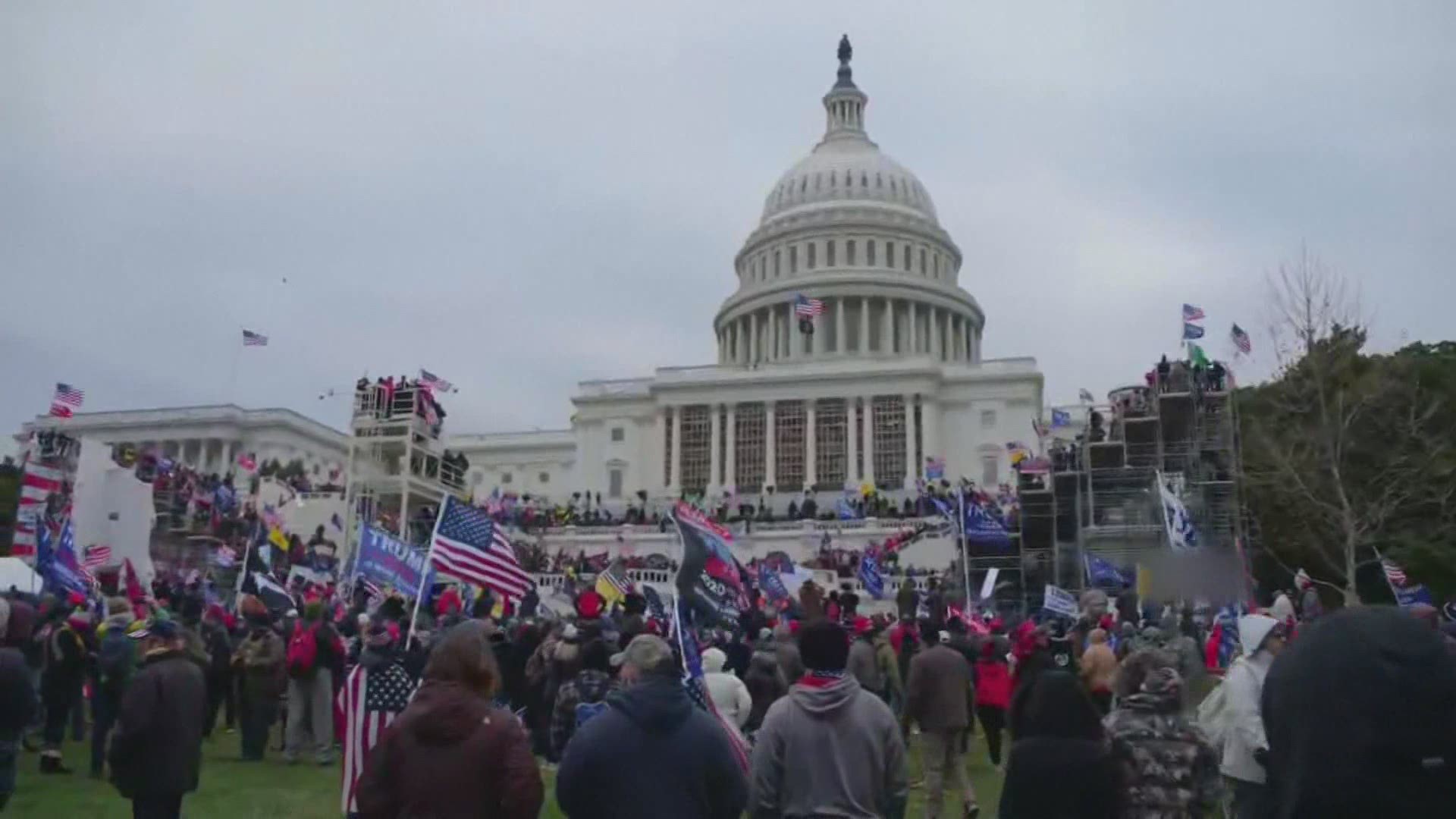WASHINGTON, D.C., USA — Senate Republicans on Friday blocked the creation of a bipartisan panel to study the Jan. 6 attack on the U.S. Capitol, refusing to back down on their opposition to the independent investigation even amid emotional appeals from those who fought with and fled from the rioters that day.
Maine Sen. Susan Collins was among six Republican senators who voted for the commission, falling short of the 10 GOP votes needed. The other GOP senators who broke ranks include Mitt Romney (Utah), Bill Cassidy (La.), Rob Portman (Ohio), Lisa Murkowski (Alaska), and Ben Sasse (Neb.). Collins, Cassidy, Murkowski, Romney, and Sasse were also among the handful of Republicans who voted to convict former President Donald Trump in his second impeachment trial earlier this year.
Sixty total votes were needed to consider the House-passed bill that would have formed a 10-member commission evenly split between the two parties. The 54-35 vote was another sign of GOP fealty to Trump and an overtly political effort to shift the focus off of the violent insurrection of his supporters.
In a statement after the vote Friday, Collins said it is "unfortunate" they fell a few votes short on the legislation "needed to help us better understand that terrible day."
"The American people, and particularly the men and women of the Capitol and District of Columbia police forces who fought so valiantly that day, deserve answers and recommendations that an independent, bipartisan commission would be able to provide," she said.
Maine Sen. Angus King, an Independent who caucuses with the Democrats, said in a statement Friday that with the vote, the majority of his Republican colleagues made it clear that “they have little interest in looking at the facts; instead, they’d rather ignore or minimize the whole event.”
“Some of them have openly acknowledged they think this commission would be bad for their political messaging, but what is the message we send to enemies of democracy, at home or abroad, by failing to ask hard questions and confront the truth? When people are moving heaven and earth to block an investigation, you’ve got to ask what it is they’re afraid will be revealed,” King said.
RELATED: 'What is it they don't want to find?' | King 'puzzled' by GOP opposition to Jan. 6 commission
Collins had proposed an amendment to the bill to ensure the commission would remain bipartisan—by requiring a jointly appointed staff—and to ensure its work “would not become mired in election year politics,” her office explained.
According to The Hill, Collins “scrambled behind-the-scenes to try to shore up GOP votes” ahead of the vote.
She told reporters she wanted to see a commission, saying “There are a lot of unanswered questions and I'm working very hard to secure Republican votes for a commission.”
The amendment and Collins’ efforts did not sway enough of her Republican colleagues, however.
“I do not believe the extraneous 'commission' that Democratic leaders want would uncover crucial new facts or promote healing. Frankly, I do not believe it is even designed to,” Senate Minority Leader Mitch McConnell, R-Ky., said on the floor. “That’s why the Speaker’s first draft began with a laughably rigged and partisan starting point, and why the current language would still lock-in significant unfairness under the hood.”
After the vote, Senate Majority Leader Chuck Schumer, D-N.Y., said in a statement on the floor, “This vote has made it official. Donald trump's big lie has now fully enveloped the Republican Party. Trump's big lie is now the defining principle of what was once the party of Lincoln.”
Collins' full statement:
“The attack on our Capitol on January 6th was an assault on our democracy as Congress was proceeding with its constitutional duty. I strongly support the creation of an independent, bipartisan, outside commission to examine the events leading up to the January 6th attack, to investigate exactly what occurred in the storming of the Capitol, and to provide recommendations on how we can ensure that such a breach never happens again, while keeping this symbol of our democracy open and accessible.
I authored a bipartisan amendment that would have helped ensure that the commission operated in a bipartisan and fair manner and that it completed its work in a timely manner. It is unfortunate that we fell a few votes short of what was needed to begin debate on this vital legislation needed to help us better understand that terrible day. The American people, and particularly the men and women of the Capitol and District of Columbia police forces who fought so valiantly that day, deserve answers and recommendations that an independent, bipartisan commission would be able to provide.”
King's full statement:
“On January 6th, the world watched as those who sought to interfere with and invalidate our electoral process attacked the U.S. Capitol, leaving law enforcement officers dead and injured in the wake of their insurrection. This was one of the darkest moments in American history, the worst attack on our democracy since the Civil War, and we need to understand what went wrong so we can prevent similar crises in the future. This bipartisan legislation was negotiated by both parties in the House, and is closely modeled after the successful, bipartisan commission that was created to uncover facts surrounding the September 11th attacks.
However, today the majority of my Republican colleagues in the Senate made it clear that they have little interest in looking at the facts; instead, they’d rather ignore or minimize the whole event. Some of them have openly acknowledged they think this commission would be bad for their political messaging, but what is the message we send to enemies of democracy, at home or abroad, by failing to ask hard questions and confront the truth? When people are moving heaven and earth to block an investigation, you’ve got to ask what it is they’re afraid will be revealed.”

